“My life in India surrounded by kind-hearted people”
Omkar, a citizen of Pune, an Indian city which boasts a rich academic heritage
Omkar is a specialist in the IT field and hails from Pune, a city located in the southwest of India about a three-hour car journey from Mumbai. Pune is a bustling city, ranking 8th in population size within India. The city offers a comfortable living environment and is known for its pleasant climate with three distinct seasons: summer, winter, and monsoon season. Pune is a hub for higher-education and is famous for its prestigious educational institutions, with the University of Pune being comparable to Japan’s University of Tokyo or Kyoto University.
Beyond the realm of education, Pune is a growing metropolis, with numerous IT and manufacturing companies contributing to its rapid development. Omkar, who graduated from Pune University with a master’s degree in computer science, specializes in IT and is currently leading international projects at Somic Ishikawa Co., Ltd. in Japan. After arriving in Japan in April 2022, he secured the “Highly Skilled Professional (1)” visa status in just one and a half years. This visa is granted to foreigners who possess advanced expertise in fields that are considered to contribute to Japan’s academic and economic development. It is a highly-coveted visa due to its relatively lenient restrictions compared to standard work visas.
In addition to his work in IT, Omkar also mentors foreign students living in Japan, offering advice based on his own experiences about life in Japan and job hunting. In this interview, we will first hear about his life in India.
Interviewer: Mitsui Pictures: Omkar
What is your hometown like?
I grew up in Pune, an educational hub attracting students from all over the country who come here to study. It’s also one of the IT centres of the country, so we have a lot of IT companies and manufacturers – which has lead to us being one of the most rapidly-developing cities in India. Pune also has a rich gastronomic scene and we are famous for a dish called misal – a bean curry with fried instant noodles.
When people think of India, they are likely to imagine overpopulated cities, but the suburbs of Pune are actually quite rich in greenery, with flowing rivers and lakes – probably a similar vibe to Fujinomiya in Japan. People from Pune are kind and always willing to help someone in need, so I never really encountered any issues when I lived in India – my time was spent in a city with the kindest citizens.
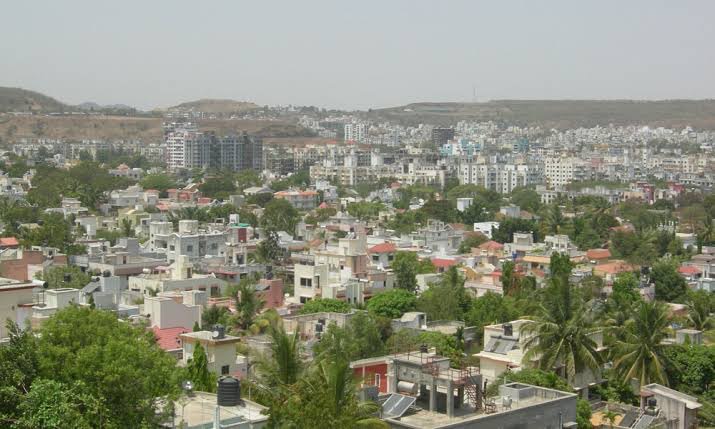
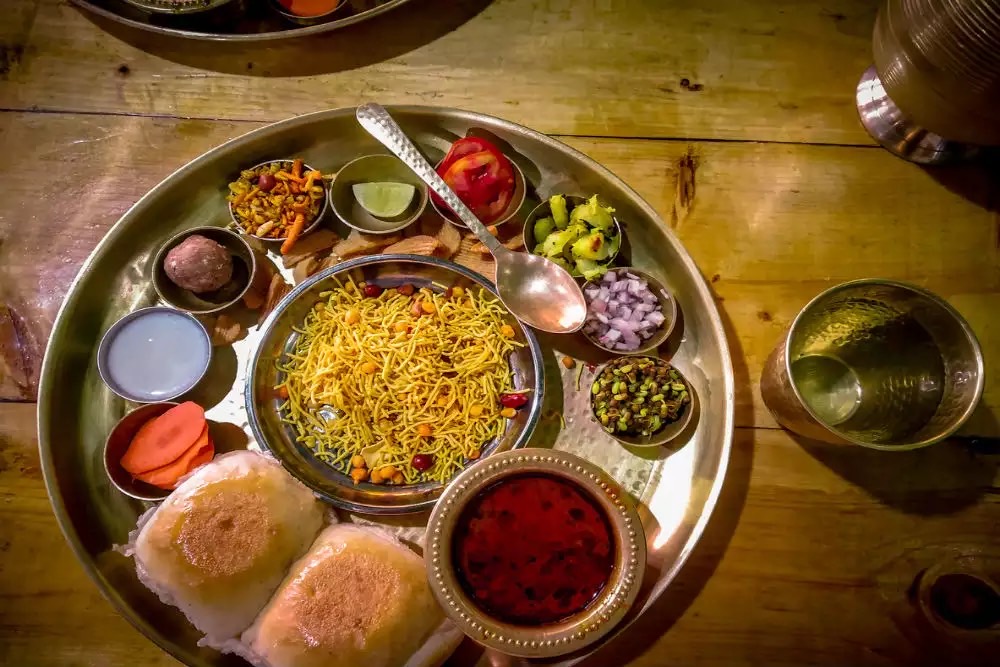
What did you do as a child?
The study periods in India are a bit different to the ones in Japan. We study at school for 10 years, then junior college for 2 years, then college for 4 years. When I was at school, I was a part of the basketball and handball clubs. My school was quite passionate about sports, so students would often do club activities after half a day of lessons. For the last two years of school I was the captain and our handball team was particularly strong – earning first place out of twenty teams in Pune.
It was definitely difficult to balance both sports and studying, but I got good grades so I put the same amount of effort into my training. There were some rough times but I just found the right balance and got through it. Sports enabled me to make a lot of friends at school and I have a lot of fond memories of hanging out with everyone after school.
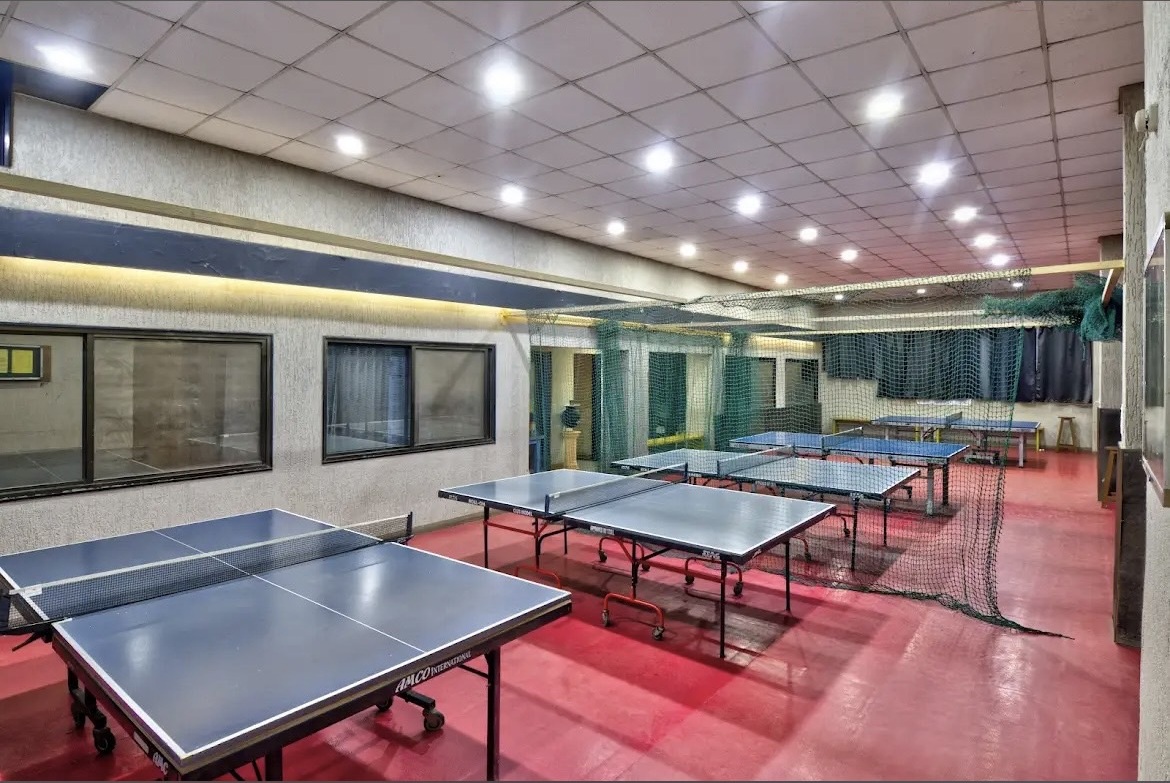
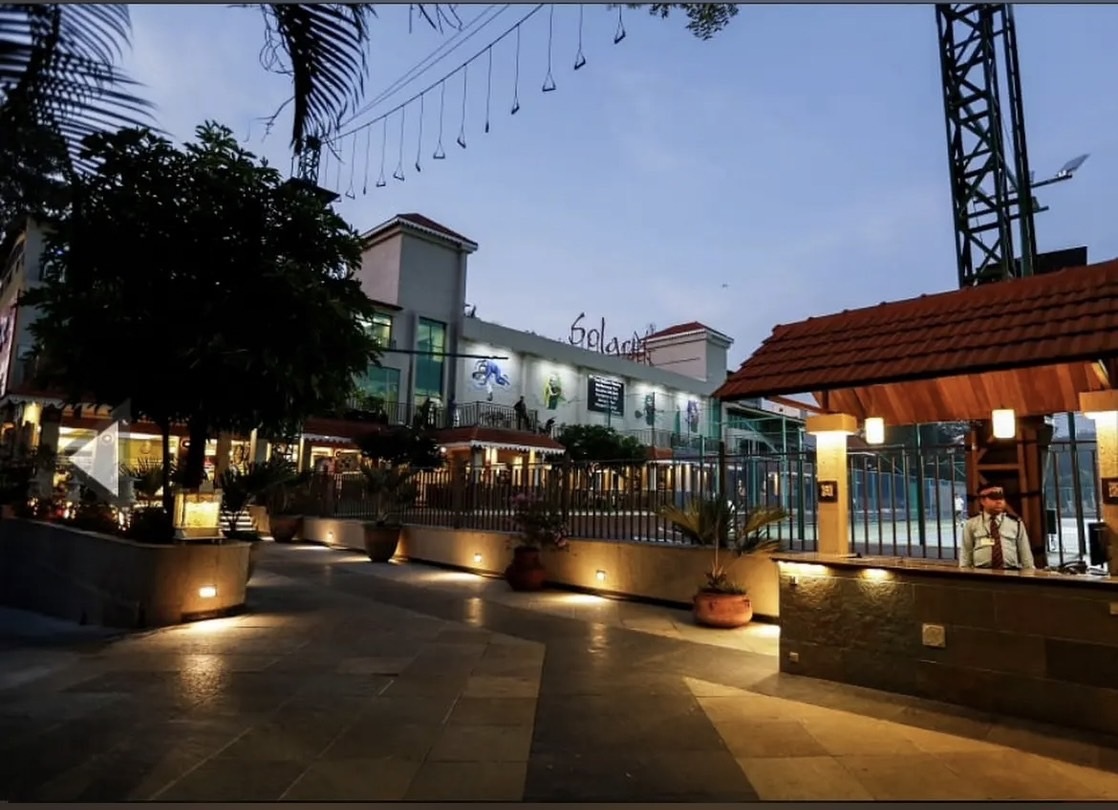
Tell us some more stories from your time in India.
I can tell you about the time I went with my four friends from elementary school to Goa, a beautiful beach resort on the western coast of India. The streets of Goa look like they’ve been taken straight out of Europe and there’s a church which is designated as a UNESCO World Heritage Site – so it’s a popular destination for domestic tourists. A lot of people have started coming from all over the world recently, so its a place that Indian people are quite proud of. I’d say it’s a bit similar to Okinawa, there’s the ocean and mountains and you can even do some shopping, too. We stayed there for about a week and made lots of new memories. When we were younger we made a promise to each other that we would visit Goa when we grew up and have a great time there, so we had a great time knowing we finally fulfilled that promise.
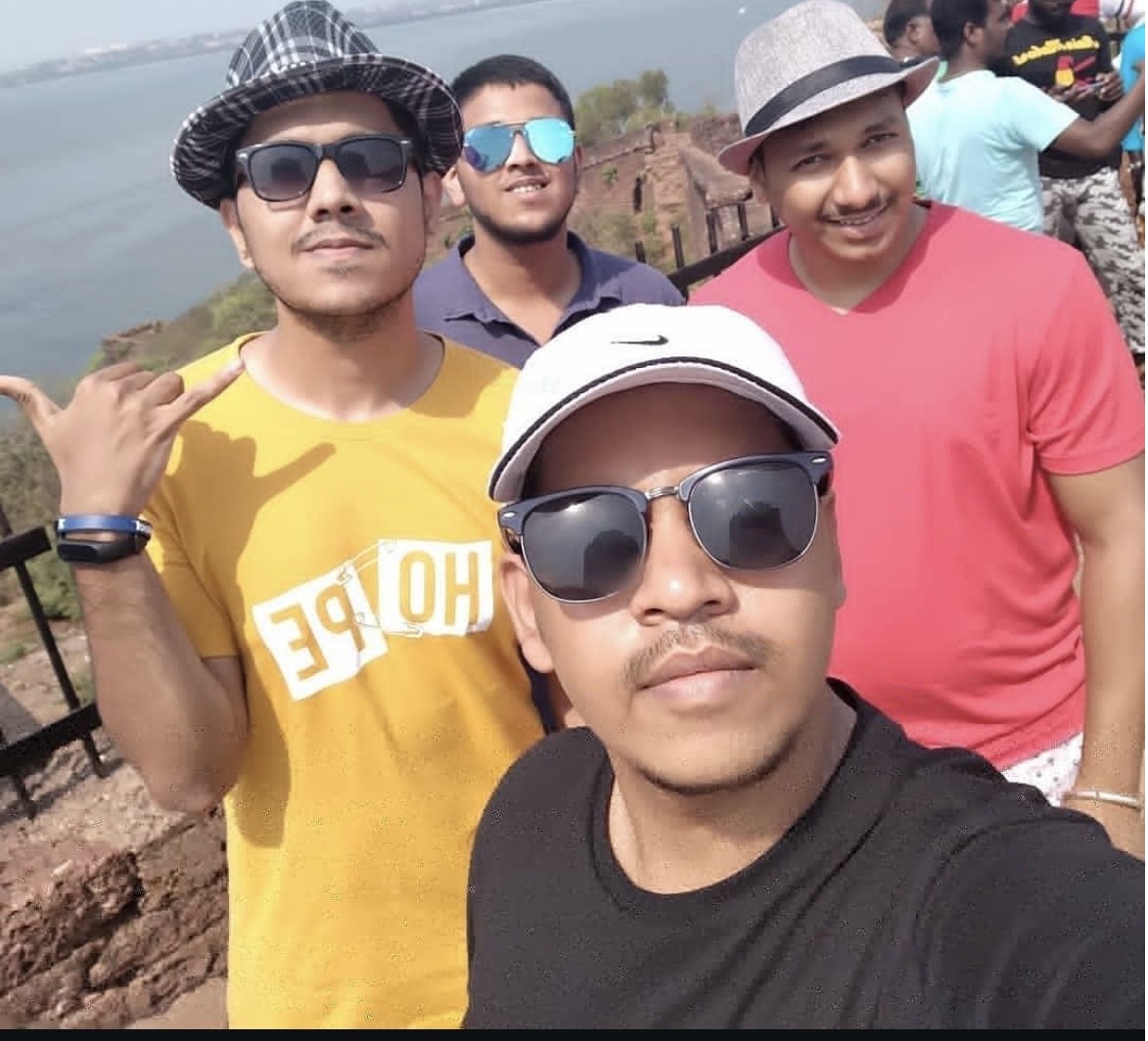
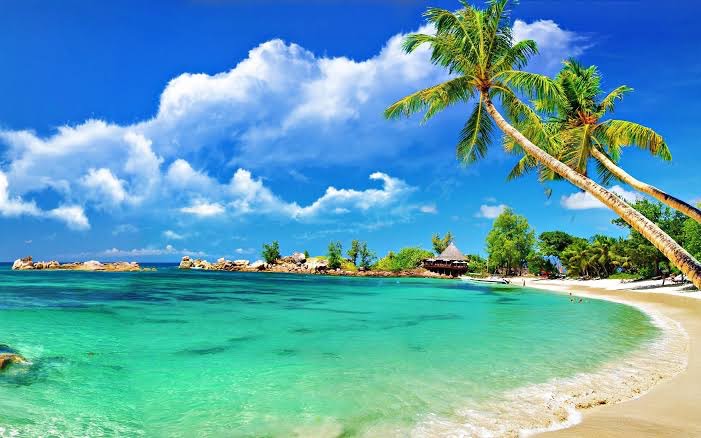
Tell us about Indian food or places you want to visit
The first thing people think of when they hear India is probably curry, but there’s actually a lot of other delicious food in India. The north and south of India have different cuisines and one of southern India’s famous foods is dhosa. It’s like a grilled crêpe that you eat with with potato, coconut, sambal, or other side-dishes. Some shops make them as large as 80 centimetres across, so it’s definitely a dish which makes its presence known.
As for north India, they’re probably known for naan or samosa. Samosas are a staple of the region that you can find in every city wherever you look, and they’re like a fried triangle filled with spicy potato. You could probably compare them to fried gyoza, so I think they’d suit a Japanese person’s palate quite well.
Aside from food, the north and south of India also have different languages. Southern India is home to 11 languages but in northern India they speak Hindi. I think one of the charms of India is that we have so much cultural and linguistic diversity across our regions that even some of our citizens don’t speak the same language.
India is a big place so of course there’s a lot of places I haven’t been to, but I would say that the place I’d like to go to the most is the Kashmir region. It’s located on the northern side of India and is famous for its vast expanse of nature and flowers.

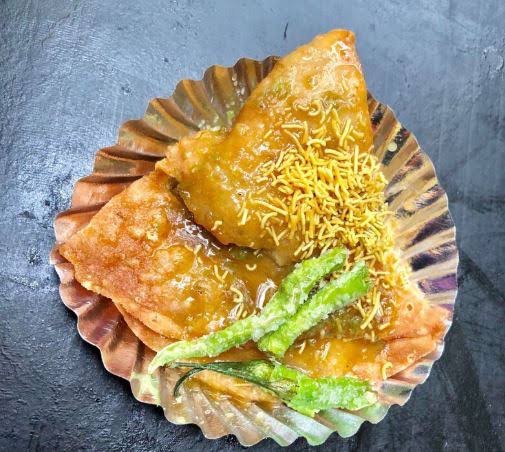
My student life dreaming about Japanese culture and technology – Going to Japan for my own self-development
Omkar developed an interest in Japan at the age of 15 when he started watching anime. He instantly fell in love with Japan and started researching all about it. He felt drawn to the country’s culture, its technology, and its industrial development, and decided to go to Japan for his own self-development. Omkar began studying Japanese during his time at Pune University – he would watch anime during the week and go to a Japanese language school at the weekends. The language app “Hello Talk” also proved useful for him to learn real-life Japanese and deepened his understanding of the language, too. In the second-half of this interview we will hear from Omkar about his motivation to come to Japan and what he currently does for work.
Tell me about how you studied Japanese.
When I was 15 I started watching “Death Note” and “One Piece” – the voices were in Japanese but there was English subtitles. In India our classes are held either in English, Hindi, or Malathi, so I have been able to speak English since elementary school.
I attended a Japanese language school at the weekends when I was a university student as my goal was to understand anime without subtitles and I would study for about eight hours in a day. My study was largely focused on listening and once I felt used to sound of the language I moved my focus onto reading. After three years of study, I passed N2 of the Japanese Language Proficiency Test and two years after that I passed N1. I memorized around 2000 kanji, so I don’t really have any issues with reading ones I encounter in real life.
Why did you come to Japan?
When I was in India, a childhood friend of mine got a job at Somic Ishikawa, which encouraged me to try taking the test for Japanese businesses. This was back during COVID so all the entry tests were done remotely. When I was in India, a childhood friend of mine got a job at Somic Ishikawa, which encouraged me to try taking the test for Japanese businesses. This was back during COVID so all the entry tests were done remotely. I managed to pass the tests for some of the companies listed in the first section of the Tokyo stock exchange, but I decided to go for Somic Ishikawa as I felt that’s where I would have the most potential for personal growth. I joined the company in October 2021 and came to Hamamatsu in April 2022 and have been working there ever since.
As a university student I studied IT and coming to Japan has granted me many opportunities to learn about ever newer technology. Everyone at my company is really kind and I haven’t been exposed to any racism or experienced anything negative. I’m really grateful to have been blessed with such a postitive working environment.
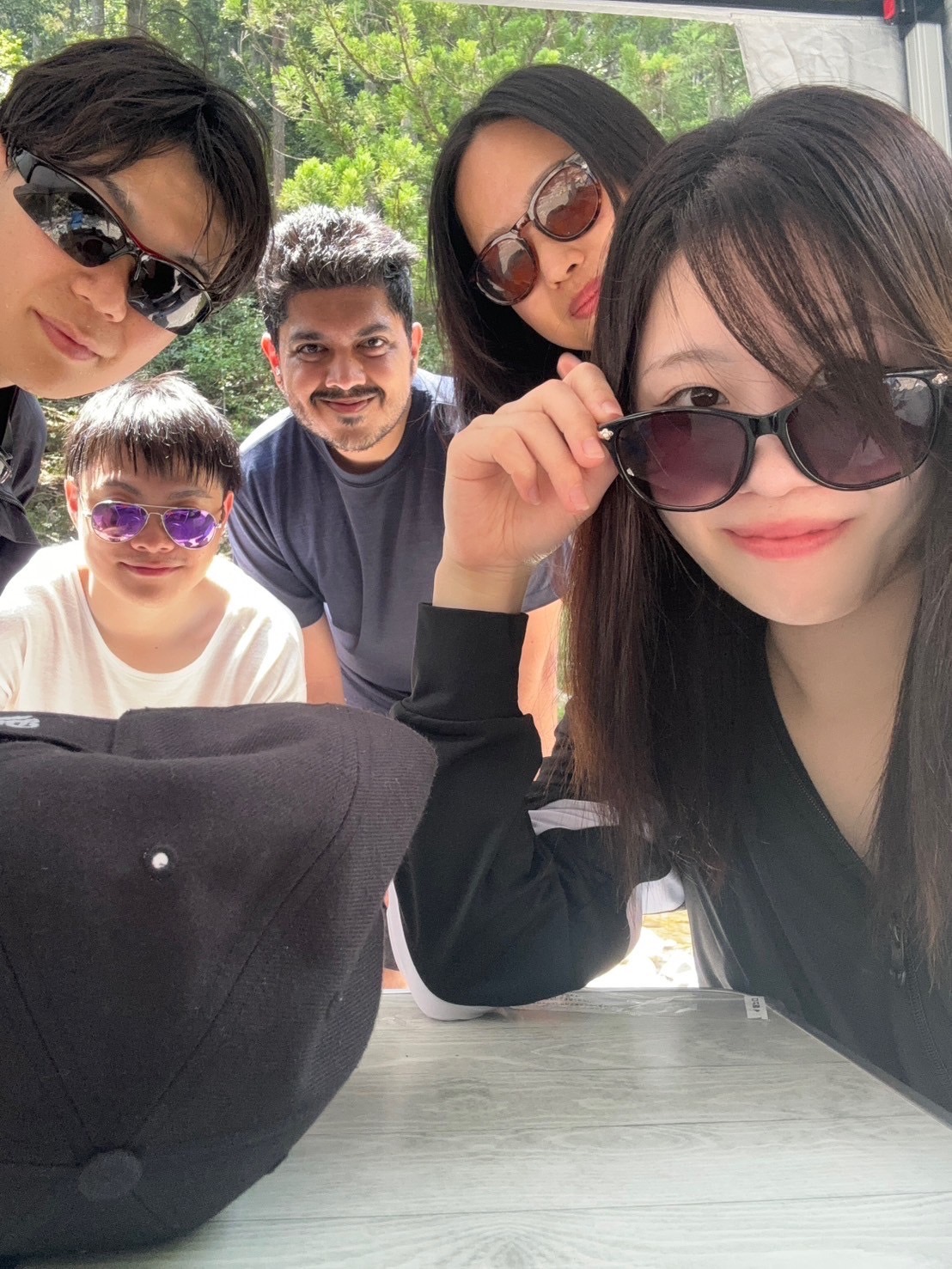
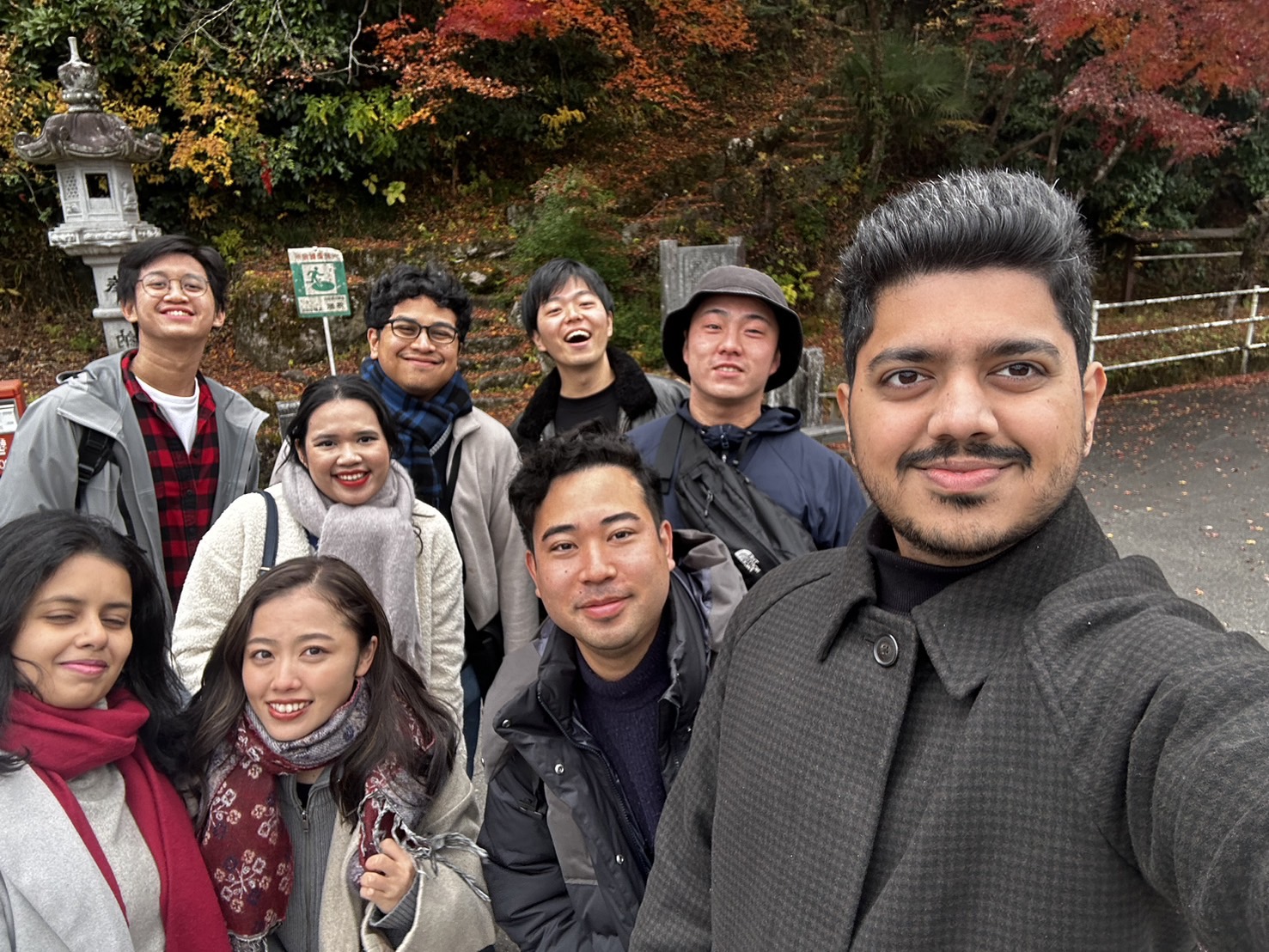
My Current Job
I use the knowledge I gained in graduate school to operate telecommunications-related networks and manage servers and security at domestic and overseas sites. There are employees from Japan, Thailand, and India, so we can sometimes run into issues where our thought processes are different, but we regularly communicate as a team to confirm that everyone is moving in the same direction. I also have opportunities to get involved with technical projects with the global team which makes every day different, so it’s a really rewarding and interesting job.
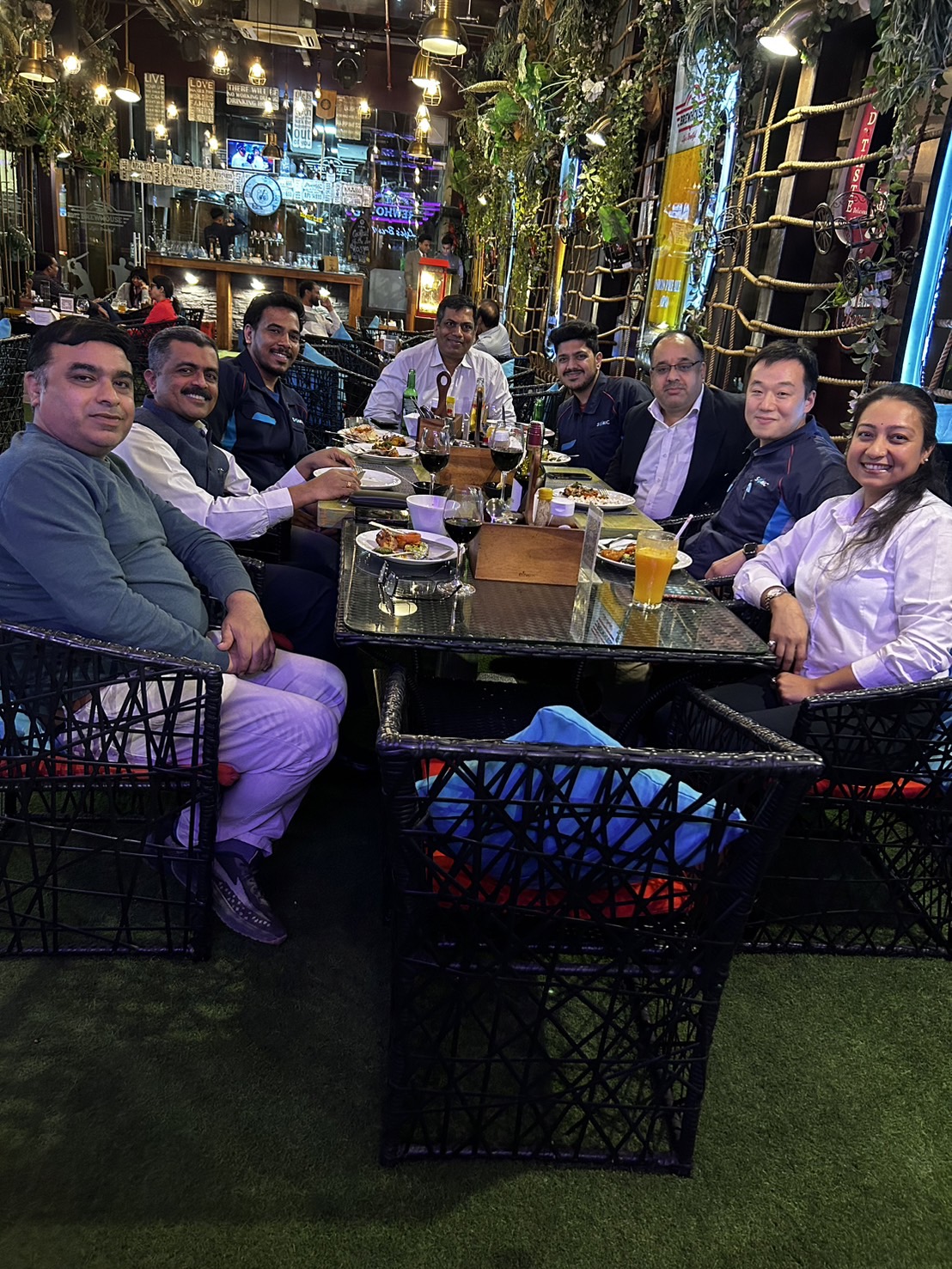
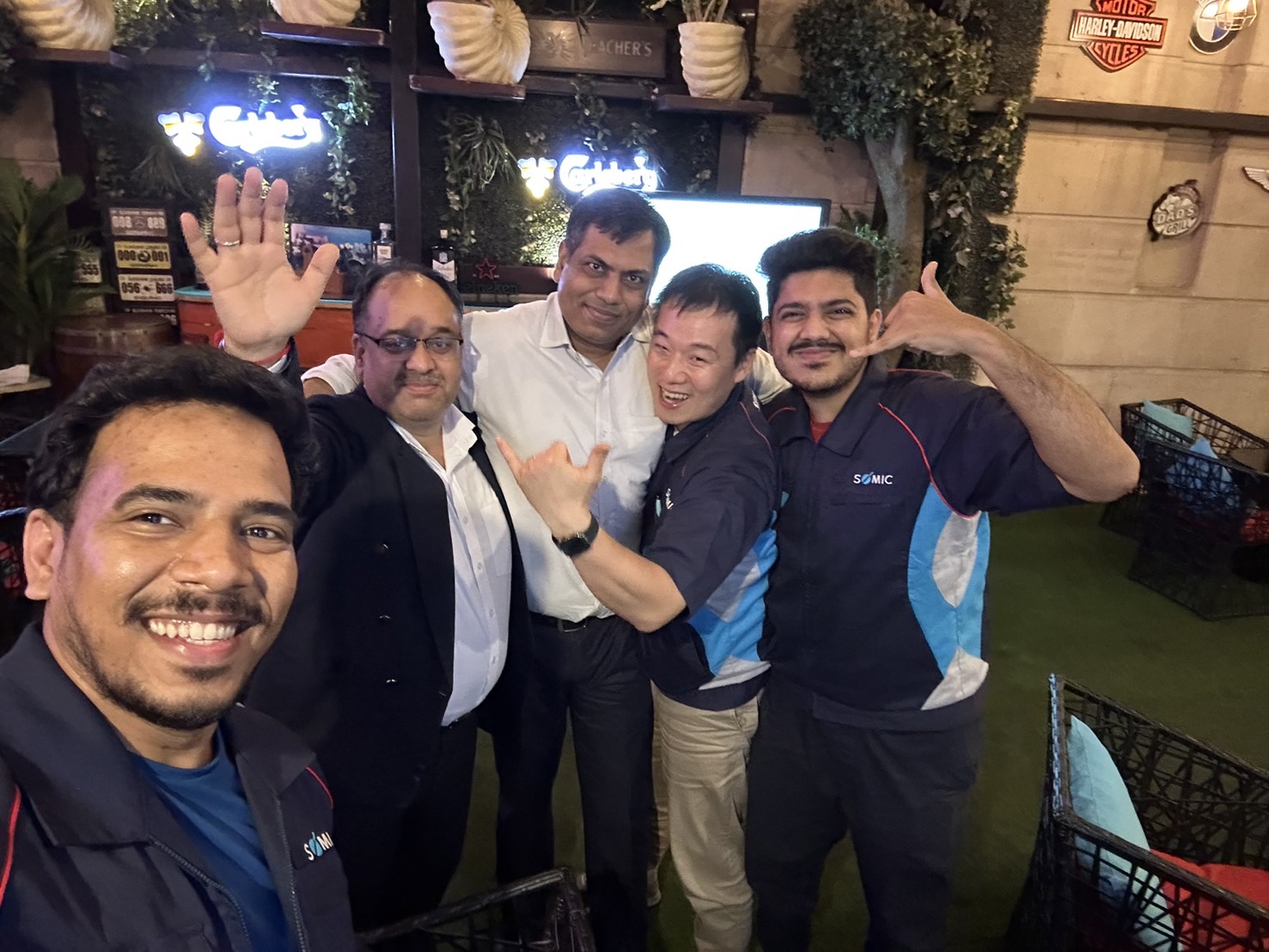
What was your impression of Japan? Were there any differences in culture that shocked you?
When I started working in Japan, I was surprised to see that every employee helps to clean the office – even the higher ups like managers and director-level staff. In India we hire specialist cleaning staff who handle that so the regular employees don’t clean the office. It was quite the shock to find out that Japanese people view their offices like their homes, so they choose to clean it themselves
In India we also separate our wet and dry garbage, but in Japan they also separate out burnable rubbish and glass bottles. People here follow the rules really closely which surprised me at first.
What do you think the biggest difference between India and Japan is?
A lot of Japanese people try to not bother other people, but in India a lot of people think that even if you bother someone, they will forgive you – so we are quite an open people. This openness can sometimes cause some issues, but as we are all open, it won’t take long to solve anything that comes up.
I feel like in Japan there are a lot of people who repress their emotions to avoid conflict with other people. There are good things and bad things about the way Indian people and Japanese people think – I don’t know if either one is the correct one, but now I feel more like a Japanese person.
What has been your impression of Hamamatsu and your experience since living here?
Hamamatsu is a really easy area to live in. The people are really sweet and you’re surrounded by greenery – and beautiful nature is only a short car ride. The city center is also clean and there a lots of places to shop, so it’s a really convenient place to be. I usually spend my days off by heading to the Nakatajima sand dunes and watching the ocean, camping in the mountains, or hanging out in the river – there are a lot of things to do which don’t require a lot of money.
The summers in Japan are different to the ones back home as they’re super humid which is hard for me, but I love the winters here. The cold seasons in India would usually go down to as low as 3 or 4℃, so I’m pretty used to the cold. I am not used to snow, however, so Hamamatsu is comfortable as it hardly snows here.
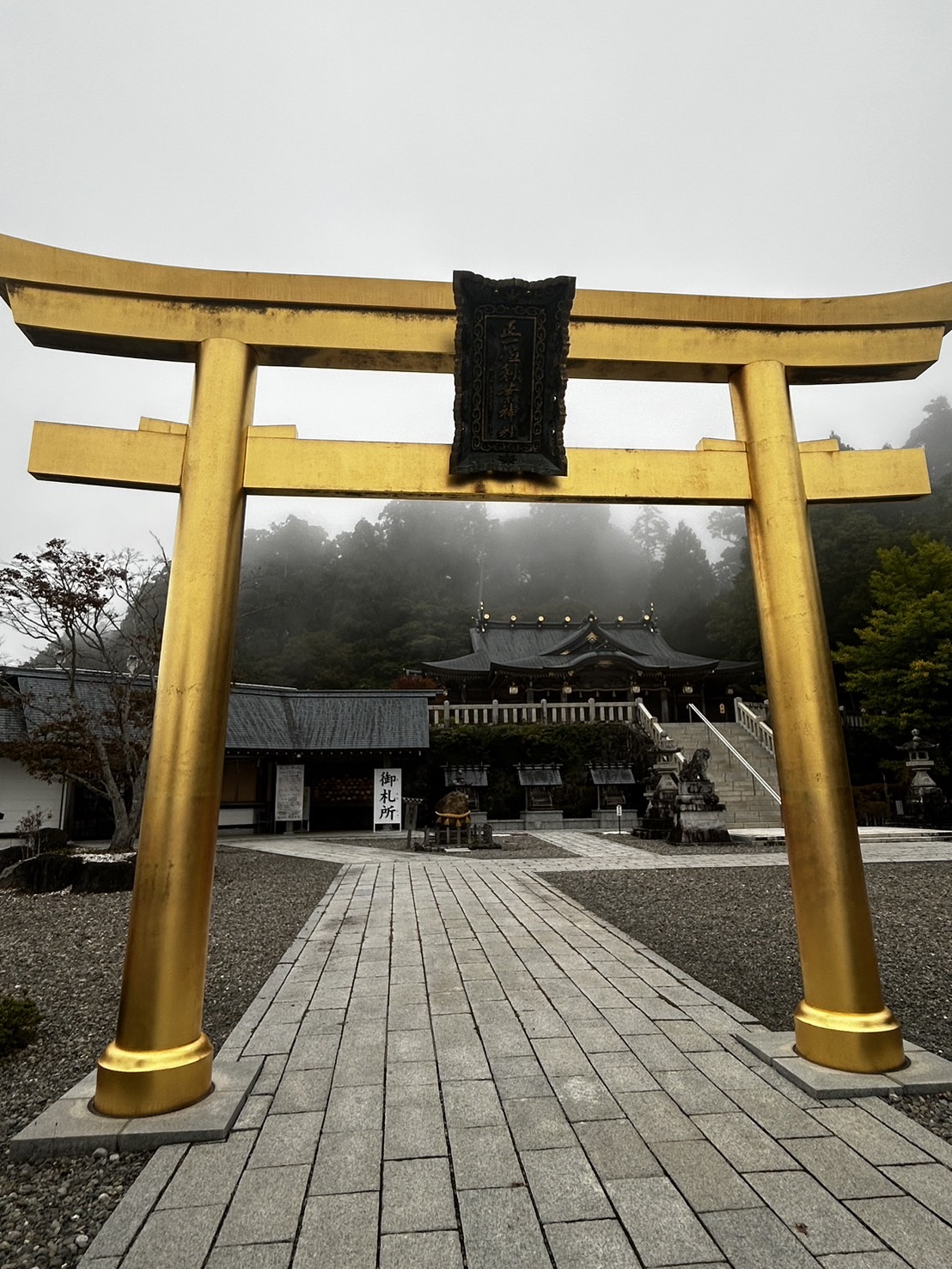
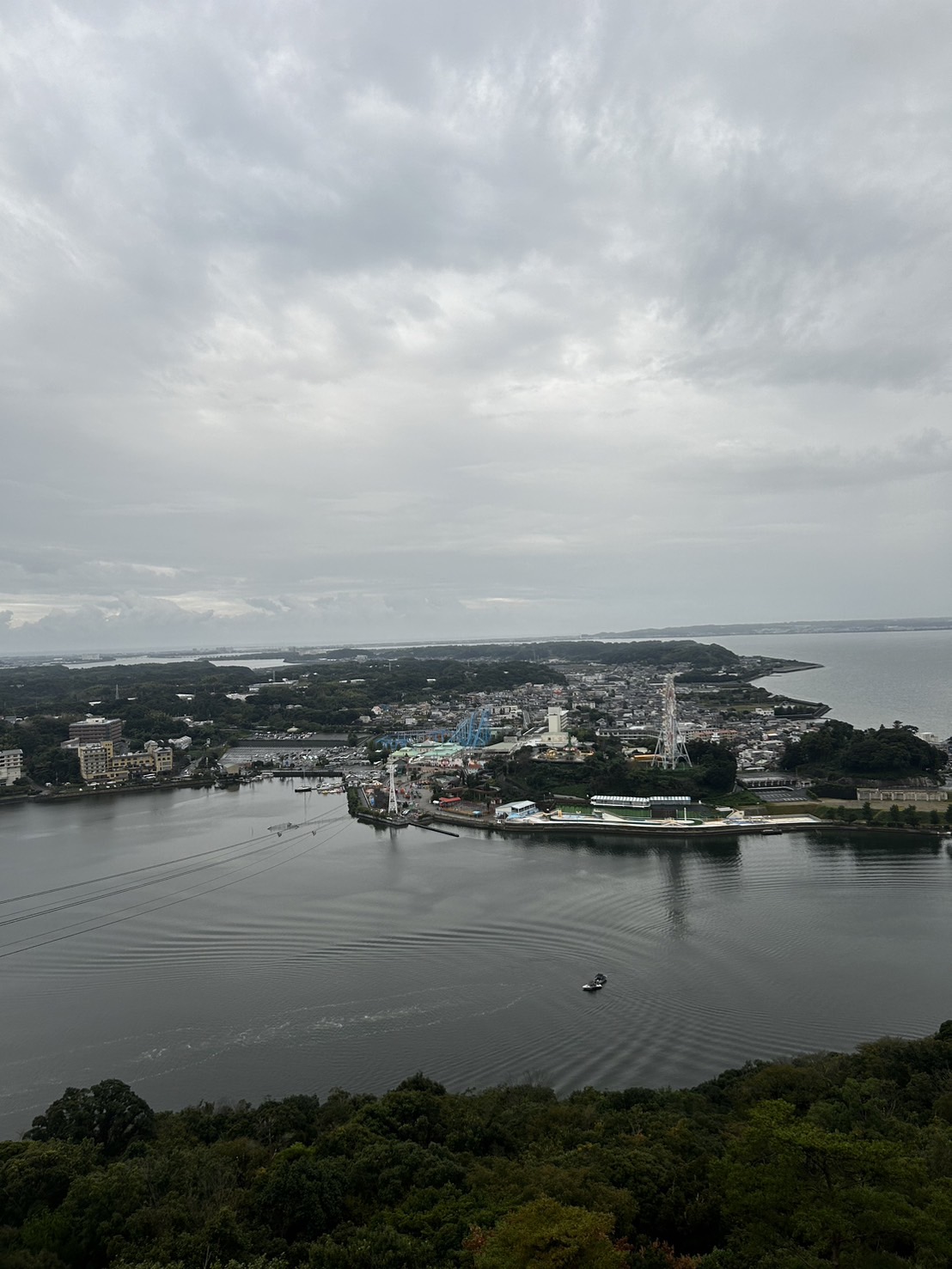
Do you have any goals for the future?
Right now I am leading the foreign team at Somic Ishikawa, but in the future I would like to be a project leader managing some domestic projects, so I need to up my managerial skills like being able to always make an accurate judgement. I am currently studying project management, cutting-edge IT, and security in order to increase my technical knowledge and leadership skills.
I want to increase my leadership experience, utilize of my own experience, and start my own business providing IT services and consulting to the world.
The employees at HICE reached out to me and now I am a mentor for foreign students finding employment and founding start-ups, so I want to devote all my efforts into using my own experiences to help foreign students live a more comfortable life in Japan.
Thank you so much for talking with us today – we look forward to seeing what you get up to next.
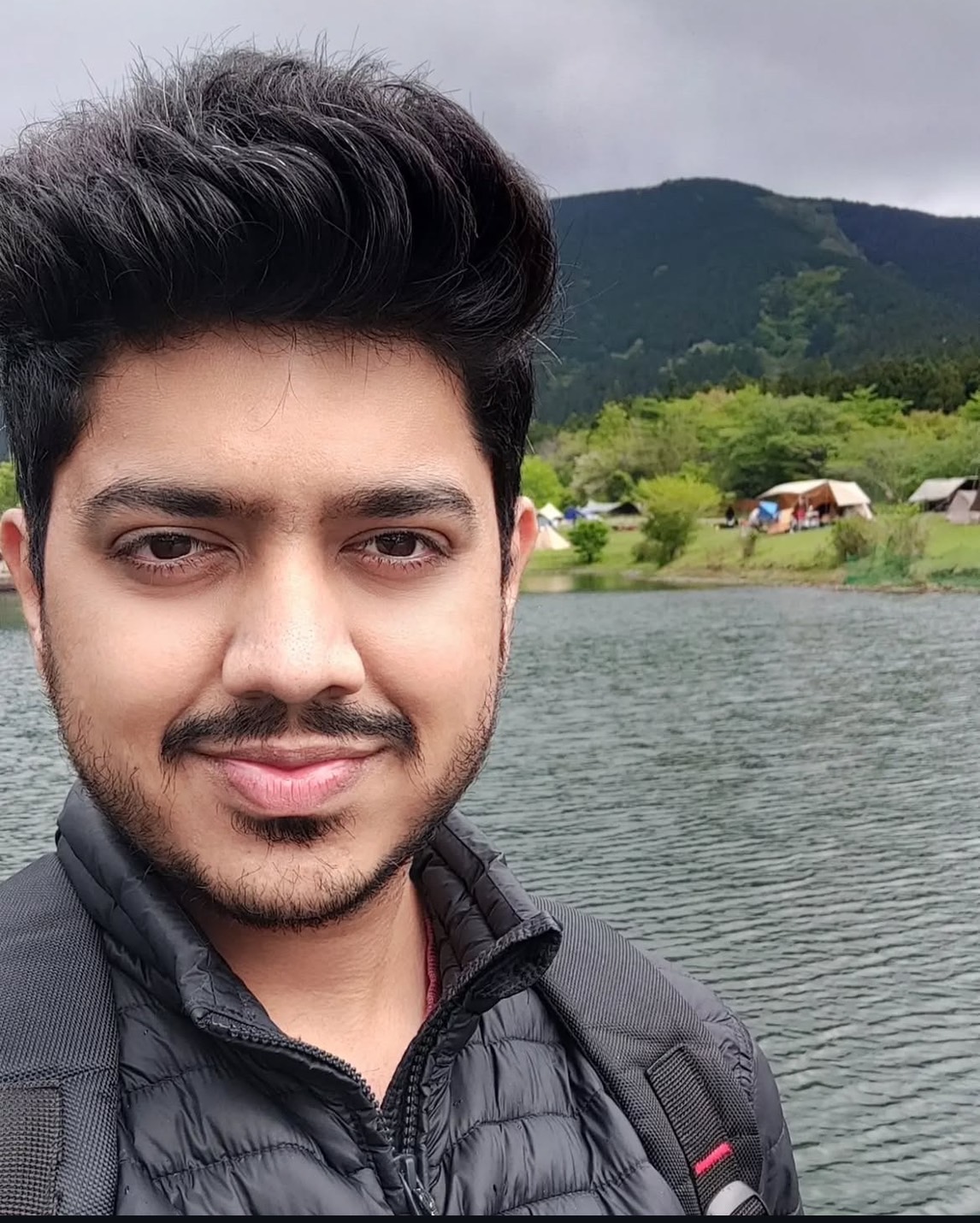
Omkar Kedar Joshi
From Pune, India
Born February 7, 1997
Graduated from PUNE University Graduate School with a master’s degree in computing
Oct 2021 Joined Somic Ishikawa Co.
Apr 2022 Came to Hamamatsu City, Japan





